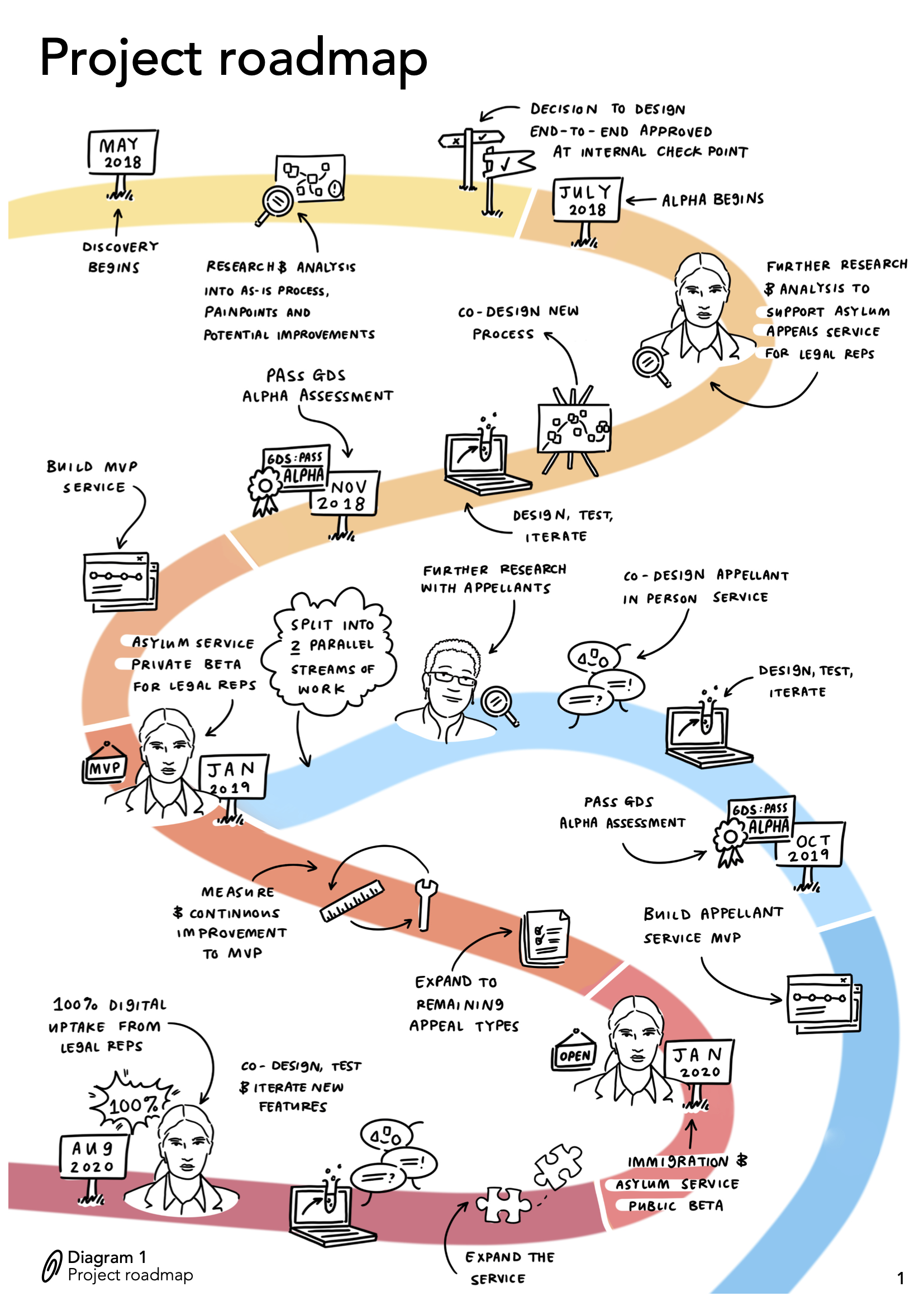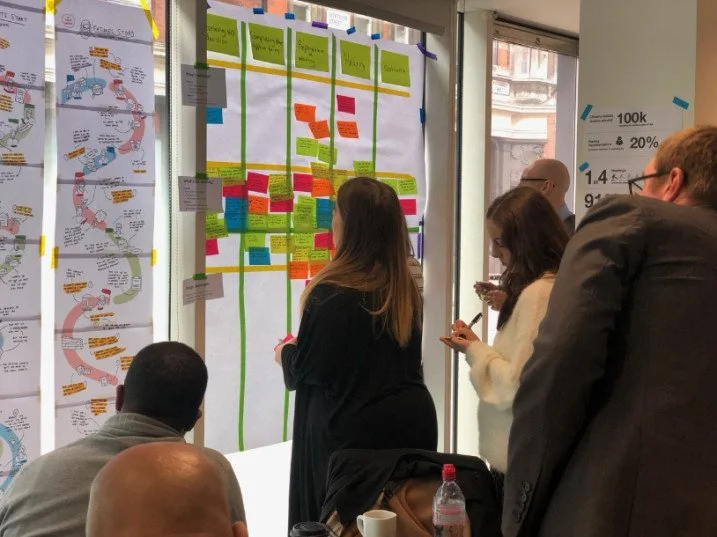Redesigning the immigration and asylum tribunal
The brief in brief
I'm proud to have spent 3 and a half years (2019-2022) as a design-researcher and service designer in a team designing and developing the transformation of the immigration and asylum appeals service for HMCTS.
This is a service that enables people to appeal against a Home Office decision to an independent tribunal. Appellants often live on the edge of society, with poor social capital, low digital literacy and little trust in government - they struggle to promote their appeal argument and understand how it is progressing. Our multi-disciplinary team was challenged to affect serious change across two government departments while designing and implementing a legal service that is inclusive for even the most excluded from society.
"[A] completely transformed Tribunal...hopefully other areas are looking in and seeing the difference that can be made"
- UK Charity
The process
From Discovery through to present day we have employed a co-design approach. We are facilitators of design, practicing design-led research and putting the experts by experience wherever possible into the role of designer. This helps socialise insights and reveal hidden ideas that could otherwise remain unknown in the minds of disempowered users.
Key to this aspect of service design, was generating empathy through storytelling with our community of change. Owing to the fear asylum seekers hold in government, as a design-researcher I had to build close working partnerships with many charitable bodies up and down the UK, who were generous in sharing their expertise, spaces and goodwill to support us to design with appellants in places where they felt safe.
It was important to me not to only see these interactions as an opportunity to gain insight but to give a platform to the appellants we engaged with to change a system they had struggled through in the past. I think some of my most memorable moments on the project were speaking to appellants.
I sensitively visualised their stories so that we were able to bring their words and stories, virtually, into rooms and forums with us when they were unable to attend in person. The stories were so powerful, honest and emotive. They provided a case for change that pushed judges, policy makers and operational staff to agree on radical new ways of working.
Those changes included:
turning complex legal language into plain English, accessible even to those for whom it's a second language with support from the judiciary
a proportionate service that only asks for information when it's needed and provides clear updates on progress
a new role for Tribunal Caseworkers which allows them to impartially work enable appellants with out representatives to share full cases
a completely transformed service design and policy changes that allow 18% of appeals to be resolved in favour of the appellant earlier without a stressful hearing
I am particularly proud to have lead the design work and the team of brilliant UCD practitioners around the service for appellants without representation, who need the most support and for whom the new ways of working will genuinely be life-changing.
“Next time we have a problem to solve I will reach for sticky notes, sharpies and stick our ideas where everyone can see them”
— Resident Judge
The “final” product
Rarely do you get to work on a project with such eye-boggling scope, that seeks radical change across physical and digital dimensions, with human-centred, life-changing objectives at the centre, immersed in long standing legislative roots and established cultures and ways of working.
Our service design is already showing high impact against the initial objectives. The design has reduced the required number of appeal hearings by 18%, changed policy across government departments, brought adversarial bodies together to collaborate on an ongoing basis, enabled new devolved caseworker capabilities, created a more inclusive service for appellants without representation and enabled lighter, digital end-to-end service delivery.
We all feel proud to not only leave behind a service design that continues to iterate and scale, but also to have established a large community of civil servants and judicial leads who believe in human-centred design principles and who know how to wield a sharpie and packet of post its without us.
"I see this as the model for all remaining Tribunals"
— Senior President of Tribunals
Our work has won the Service Design Award 2020, which represents the global benchmark for world-class service design, in the category of Professional Non-profit / Public Sector and has won the BIMA 10 2021 which celebrates 10 digital-first projects that have solved real challenges, created new opportunities or that have done something in a brave new way.

